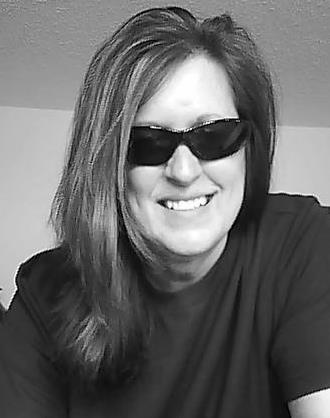
Besides writing countless of articles and releasing a book called “On Being A Rat,” Chila Woychik is the owner and managing editor of Port Yonder Press. (Photo submitted by Chila Woychik.)
By: Jacob Elyachar
Have you ever wanted to know about the insights of the world of independent publishing? Author Chila Woychik might have the answers that you are looking for.
Woychik has published and edited multiple articles that appeared in countless of magazines since 1995. In addition to her accomplishments, Woychik is the owner and managing editor of Port Yonder Press where she has edited several books that have won several publishing awards.
I had the chance to correspond with her and we talked about how she got into writing, her first book: “On Being A Rat” and her thoughts on the ever-changing world of the publishing industry.
Jacob Elyachar: When did you get interested in writing?
Chila Woychik: I’ve loved the language arts all my life but didn’t seriously pursue publication until 1995, and have since had many dozens of magazine articles published.
JE: What were the steps that you took to become an author?
CW: Still learning, and I don’t think the steps ever end. A few things I found imperative though were thorough research, a winning writing style that flowed smoothly from word to line to page, and a passion for my topic. In other words, write well and write deeply.
JE: Which genres do you prefer to write in and why?
CW: Creative nonfiction is my darling; it’s often beautiful and a tad arcane, and both elements stretch me to my linguistic limits, which, to me, is what is all about. Having said that, I’ve also recently begun writing fiction, and am enjoying it very much.
JE: Let’s talk about the first book that you wrote: “On Being A Rat.” Can you share with my readers what your writing process was like for your book?
CW: The lyric essay is generally a short, pithy, and lyrical (hence the name) piece of information on a single topic. Since “Rat” is comprised almost entirely of lyric essays, along with a few related poems, I simply came up with topics I was passionate about or which influenced me profoundly in some way, jotted them down, then worked and reworked them until they looked less like short essays and more like, hopefully, beautiful glances into my life, into my thoughts and writing life. I always know when I read a manuscript or book and the author has rushed it through or the editing has been substandard: it reads poorly and I lose interest around the third paragraph. Revision is the real crux of writing. The writing itself is the easy part. Bringing a work up to an enjoyably readable state is much, much harder and extremely time-consuming. I have little interest in reading a book that an author took only six months to write.
JE: You have edited several books in the past. What are some of the most rewarding parts of being an editor? The most aggravating part of being an editor?
CW: I get excited about taking a good manuscript and making it great; of course, the better it is initially, the more excited I get. With a piece that’s simply unreadable and flat page after page after page, I haven’t the time or desire to rewrite it, and besides, that’s the author’s job, not mine. If I can impress on writers one thing it would be to learn to write better than they do now, and the way to do that is to read books that are far better than theirs. There are plenty of them out there, to be sure, though most authors don’t want to swallow that pill. I’m aggravated at the many authors who are average in what they do, and are satisfied with that, and with editors who don’t know their job and let so much go, and with publishers who waste our time by putting that stuff on the market. Give me a truly good book or manuscript and I’m very, very happy.
JE: What are your thoughts on the ever-changing publishing industry?
CW: I love innovation and change. I love the advancements that give authors even more options to improve themselves and get their better work out there. In short, I’m all for it and look forward to what the future holds.
JE: If you had any advice for any aspiring writers, what would it be and why?
CW: Again, though we’ve heard it time and again, it’s true and our whining and laziness won’t change the truth: We have to read the best to be the best. That means we read high-quality award-winning works (think Pulitzer Prize, Nebula, Hugo, National Book Award winners, Rhysling winners, Man Booker, etc.). We observe style and form. We analyze character development and setting. We watch sentence structure, wording, and paragraph / scene progression. And the complaint I hear from religious readers? “But there’s bad language or sex in them!” My response? “Then skip those parts, or find books that don’t have those elements in them. Don’t throw the baby out with the bath water, for heaven’s sake.” Or better yet, “Get a backbone and realize it won’t kill you or even doom you to hell, won’t affect your spirituality if you read a bad word now and then. What, do you live in a bubble?” Listen, learn, and trust those who have written successfully and well.
To learn more about Chila Woychik, visit her blog: http://chilawoychik.com/
Find out more about Chila’s company, Port Yonder Press, by clicking here: http://www.portyonderpress.com/





Thanks, Jacob! Good questions, and I’d love to return sometime to further look at the wonderful world of writing and small press publishing.